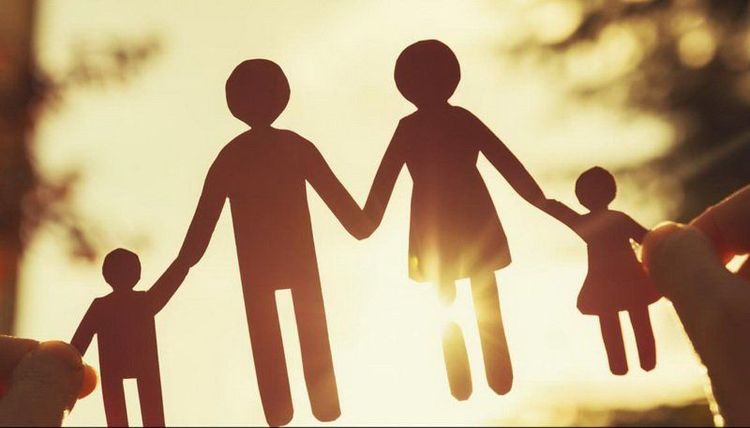This is an automatically translated article.
Each person's emotional intelligence quotient depends on many factors, and sleep deprivation cannot be ruled out. Does lack of sleep really lower your emotional intelligence? Read on to learn more about the relationship between sleep deprivation and emotional intelligence, as well as how to control your emotions.
1. What is sleep deprivation?
Lack of sleep is a common problem in modern society, leading to many health problems. It occurs when an individual experiences a disruption in sleep patterns while awake due to various reasons. Children, adults and the elderly are all susceptible to the effects of sleep deprivation.
Insomnia seriously affects physical health, mental health, memory, mood, etc. yours in far-reaching and surprising ways.
Frequent changes in sleeping patterns are usually not a cause for concern. However, continued lack of sleep can lead to low productivity, lack of concentration, excessive daytime sleepiness, obesity, emotional complexity, poor job performance, and decreased quality of quantity of life.
Over time, chronic sleep deprivation can cause a host of health problems, including:
Increased risk of type 2 diabetes Increased stress hormone levels Higher risk of cardiovascular disease Increased levels levels of inflammation Too much daytime sleep Anxiety Memory problems Weight gain Increased sensitivity to pain Lack of sleep also impairs cognitive function, decision making and reaction time. That's why lack of sleep increases the risk of car accidents. Insomnia is also thought to increase acne, skin aging, and decrease the skin's ability to heal.

Thiếu ngủ kéo dài có thể ảnh hưởng nghiêm trọng đến sức khỏe của bạn
2. What is Emotional Intelligence?
Emotional Intelligence Quotient stands for Emotional Quotient - EQ. EQ is used to measure a person's imagination and creativity. People with high EQ have the ability to recognize, evaluate and regulate the emotions of themselves and others. When it comes to happiness and success in life, EQ is just as important as IQ. Learn how you can boost your emotional intelligence, build stronger relationships, and achieve your goals.
Emotional intelligence is the ability to understand, use, and manage your own emotions in positive ways to relieve stress, communicate effectively, empathize with others, overcome challenges, and relieve stress. defuse conflict. Emotional intelligence helps you build stronger relationships, succeed in school and work, and achieve your professional and personal goals. It can also help you connect with your emotions, turn intentions into action, and make informed decisions about what's most important to you.
Emotional intelligence is usually defined by four attributes:
Self-management - You can control your emotions and impulsive behavior, manage your emotions in healthy, proactive ways, adhere to commitments and adapt to changing circumstances. Self-Awareness - You recognize your own emotions and how they affect your thoughts and behaviour. You know your strengths and weaknesses, and have confidence. Social awareness - You have empathy. You can understand the feelings, needs, and concerns of others, capture emotional cues, feel socially comfortable, and recognize power dynamics within a group or organization. Relationship Management - You know how to develop and maintain good relationships, communicate clearly, inspire and influence others, work well in teams, and manage conflicts.
3. Insomnia can lower emotional intelligence
3.1. Lack of sleep makes you more emotionally reactive. Not getting enough sleep increases your emotional reactivity making you more impulsive and resentful. Emotional reactions are not just irritability. But those irritants make us irritable with those around us, leading to us being tired and exhausted.
According to research, even one night of sleep deprivation makes us react more strongly and impulsively to negative or unpleasant situations. And when faced with chronic sleep debt, you'll have to deal with this highly emotional response on a daily basis.
Currently, researchers are still learning about the connection between sleep and emotions. As we know, lack of sleep affects the complex emotional centers of the brain, making us more likely to overreact or get angry and frustrated.
Research shows that sleep deprivation increases activity in the amygdala - the brain's emotional response center. This part of the brain controls many of our immediate emotional responses. During a short nap, the amygdala is overactive, making us more reactive to situations. Interestingly, it's not just our negative emotions, like anger and fear, that get a strong response. Studies have also shown that, when we are sleep deprived, we react more quickly across a whole spectrum of emotions, positive and negative.
At the same time, the amygdala is activated, and sleep deprivation also interferes with communication between the amygdala and the prefrontal cortex, another area of the brain involved in emotional regulation. This part of the brain handles a lot of complex tasks, and one of them is suppressing impulsivity. The prefrontal cortex is like a traffic cop to emotions: When it senses an impulsive response, it signals you to slow down.
When you don't get enough sleep, this part of your brain can't do its job either, and you become more impulsive and less thoughtful in your emotional reactions.
We all go through emotional experiences every day and throughout our lives. Those experiences are stored in the brain as memories – and sleep plays an important role in processing those memories. REM sleep in particular seems to be especially important in processing painful and difficult memories. It also helps bring your emotional mind back to a more neutral state. This nightly emotional reset is important to your ongoing mental health.
REM sleep occurs in a series of stages throughout a night of sleep. As the night goes on, the REM episodes get longer, with most REM episodes occurring in the last third of the night. When your sleep is disturbed, your brain doesn't get the benefit of this restorative work and your emotional life can suffer.

Thiếu ngủ góp phần khiến bạn khó kiểm soát cảm xúc của bản thân
3.2. A more negative outlook Knowing how our brain's emotional centers are affected by sleep deprivation, it's not hard to imagine how sleep deprivation could contribute to more negative thinking. Not sleeping well causes us to focus on repetitive negative thoughts. Repeated negative thoughts are intrusive, difficult to control, and can have a major impact on your emotions and functioning. They have also been implicated in the development of depressive and anxiety disorders.
A new study shows that sleep-deprived people spend more time on repetitive negative thoughts and are less likely to control their mind in a negative way than those who get quality sleep. . The scientists also found that the greater the sleep deprivation, the harder it was for people to turn their minds to reflect on negative thoughts, feelings, and experiences. No one would choose to have a mind stuck in a negative thought cycle. Unfortunately, when you're chronically sleep deprived, that's what happens — and it can be a difficult cycle to break.
3.3. You are more worried about your future Lack of sleep aggravates emotional reactions, fear reactions and creates a negative outlook. Not only that, it also makes us worry more. Recent research shows that when we're sleep-deprived, we worry more about the future - especially if we're prone to anxiety in general.
Scientists at the University of California, conducted a fascinating study in which they found that sleep deprivation increases our tendency to worry about the future — a form of anxiety that scientists say called predictive anxiety. We've known for a long time that sleep deprivation increases anxiety and contributes to anxiety disorders. Their study provides some important new insights into how sleep deprivation exacerbates the brain's anxiety response.
Researchers observed brain scans of 18 healthy young adults when they viewed images that contained emotionally and emotionally neutral content. To stimulate pre-prediction anxiety, the scientists gave participants a signal before viewing individual images, letting them know they were about to see a disturbing image. The scientists observed and measured brain responses among the participants, both when the participants were well-rested and when they were sleep-deprived.
Brain activity in response to the predicted cue was much higher when the participants were sleep deprived than when they were well rested. Again, it is the brain's emotional control centers that are activated during sleep deprivation and contribute to increased anxiety about the future.
The researchers found that sleep deprivation causes more anxiety than expected in people who are already prone to anxiety. If you tend to be anxious, getting enough rest is especially important to maintain a healthy emotional balance and avoid the development of chronic anxiety.
3.4. Less Connected to Your Family Sleep deprivation doesn't just affect our individual mental health. It also affects your spouse or other family members. Of course, reacting more emotionally and focusing on the negative is unlikely to improve anyone's relationship. But lack of sleep also directly affects the way we see and treat our partners.
Lack of sleep also reduces our ability to empathize, an important emotional skill for relationships. Empathy is the ability to understand the feelings, thoughts, and experiences of others.
Researchers recently studied the effects of sleep on emotional empathy and found that, when we're sleep deprived, we're less likely to show empathy for others. That means we are less able to see things from the other person's point of view and less able to recognize and imagine their feelings. It is in line with other studies showing that sleep deprivation impairs the ability to accurately perceive other people's emotions.
The skills of self-awareness, appreciation of others, and empathy are essential parts of our emotional intelligence, and sleep deprivation undermines them, often undermining relationships of trust and Communicating in the relationships that matter most to us. Studies show that sleep-deprived couples fight more and resolve conflicts less successfully than well-rested couples. And just one person in a couple sleep deprived will increase conflict.

Thiếu ngủ có thể khiến bạn ít kết nối với gia đình hơn
4. Control emotions by improving insomnia
To manage your emotions, you need to improve the quality of your sleep, with some preventive measures that may help before bed:
Create and follow a regular sleep schedule and consistent. Maintain a strict bedtime and wake-up time to form a routine. Avoid napping too much during the day because napping makes you less sleepy at night. Avoid alcohol and caffeine within 8 hours of going to bed Follow a bedtime routine like brushing teeth, washing face for 2 minutes. These signals send psychological signals to alert your mind and body that it's time to go to sleep. Limit the use of electronic devices (TVs, laptops and mobile phones) 1 hour before bedtime. These devices emit light and disrupt your body's biological clock. Try not to exercise heavily three hours before you go to bed. However, regular exercise during the day is beneficial. Use your bed only to sleep Try to get rid of any stress and anxiety and feel relaxed before bed. Meditate to improve concentration, mindfulness, stress relief, and stress relief
Please dial HOTLINE for more information or register for an appointment HERE. Download MyVinmec app to make appointments faster and to manage your bookings easily.
References: webmd.com, sleepstandards.com, psychologytoday.com












